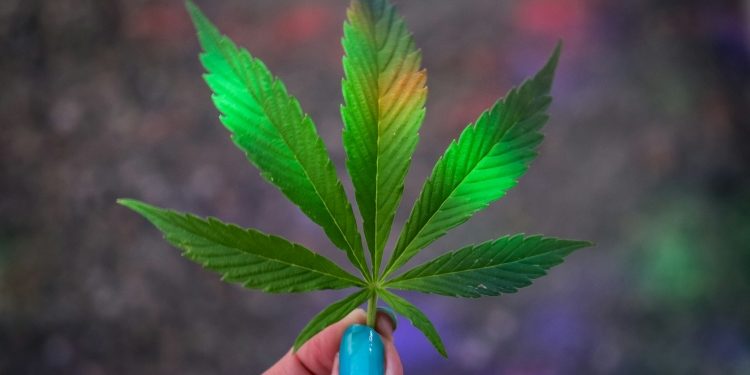420 Day, celebrated on April 20th every year, is an annual event that holds significant cultural and social importance, especially within cannabis communities worldwide. Originating as an underground counterculture phenomenon, it has evolved into a widely recognized day of celebration and advocacy for cannabis legalization and reform.
Origin and History
The origins of 420 Day trace back to a group of high school students in California in the early 1970s. These students, known as the “Waldos,” would meet at 4:20 p.m. after school to search for a rumored abandoned cannabis crop. Although they never found the elusive stash, their designated meeting time became synonymous with cannabis culture.
Over time, the term “420” grew beyond its original context and became a symbol of cannabis counterculture. As the internet age dawned, it spread globally, gaining popularity among cannabis enthusiasts and activists worldwide.
Cultural Significance
420 Day is celebrated by millions of people around the world, often marked by gatherings, festivals, and protests advocating for cannabis legalization. It serves as a day of camaraderie among cannabis enthusiasts, fostering a sense of community and solidarity.
Community gatherings and events on 420 Day offer a platform for advocacy, education, and celebration. From music festivals to educational seminars, these events contribute to the normalization and destigmatization of cannabis use.
420 Day Around the World
While 420 Day originated in the United States, its observance has spread internationally. Countries across the globe now recognize April 20th as a day to celebrate cannabis culture and advocate for reform.
Regional variations in 420 Day celebrations reflect diverse cultural attitudes towards cannabis. While some nations host large-scale festivals and rallies, others may have smaller, more intimate gatherings.
Legalization and Advocacy
One of the key themes of 420 Day is the push for cannabis legalization and reform. The day serves as an opportunity for activists to raise awareness about the social and economic benefits of legalization while highlighting the injustices of prohibition.
The growing acceptance of cannabis for medicinal and recreational purposes has fueled advocacy efforts worldwide. 420 Day serves as a catalyst for political action, driving initiatives for legalization and regulatory reform.
Misconceptions and Challenges
Despite its growing acceptance, 420 Day still faces misconceptions and challenges. Critics often portray it as a frivolous celebration of drug culture, overlooking its deeper significance as a platform for social change.
Stigma surrounding cannabis use persists in many parts of the world, hindering progress towards legalization and reform. Advocates must confront these misconceptions head-on, promoting a nuanced understanding of cannabis and its potential benefits.
Health and Wellness Perspective
From a health and wellness perspective, cannabis offers a range of therapeutic benefits. Research has shown its effectiveness in treating various medical conditions, including chronic pain, anxiety, and epilepsy.
Promoting responsible cannabis use is a key aspect of 420 Day advocacy. Education about dosage, consumption methods, and potential risks helps ensure that individuals make informed choices about cannabis use.
Social and Economic Impact
The legalization of cannabis has significant social and economic implications. It creates new opportunities for job creation, tax revenue, and industry growth while reducing the burden on law enforcement and criminal justice systems.
Socially, cannabis legalization fosters a more tolerant and inclusive society, challenging outdated attitudes towards drug use. It promotes harm reduction strategies and prioritizes public health over punitive measures.
Why You Should Care
Whether you’re a cannabis enthusiast or not, 420 Day holds relevance for everyone. It’s not just about celebrating a plant; it’s about advocating for social justice, promoting public health, and supporting individual freedom.
By supporting cannabis legalization and reform, you’re contributing to a more just and equitable society. You’re standing up against outdated policies and challenging the stigma surrounding cannabis use.
Conclusion
In conclusion, 420 Day is more than just a day to get high; it’s a global movement for change. From its humble beginnings as a high school tradition to its current status as a worldwide phenomenon, it embodies the spirit of activism and community.
Whether you’re attending a rally, sparking up with friends, or simply learning more about cannabis, your participation matters. Together, we can create a world where cannabis is recognized for its therapeutic value and regulated responsibly.
David Prior
David Prior is the editor of Today News, responsible for the overall editorial strategy. He is an NCTJ-qualified journalist with over 20 years’ experience, and is also editor of the award-winning hyperlocal news title Altrincham Today. His LinkedIn profile is here.




![7 Best POS Software in the UK [2026 Edition]](https://todaynews.co.uk/wp-content/uploads/2026/02/7-Best-POS-Software-in-the-UK-2026-Edition-360x180.png)








































































